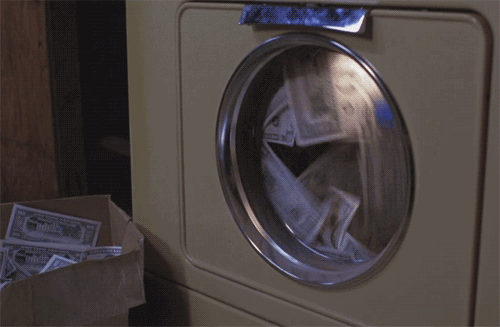Hometown International Inc., the deli in Paulsboro, New Jersey, that is a $100 million public company for very perplexing reasons, had another good day yesterday. After trading 27,381 shares, total, from the beginning of 2021 until last Thursday, an average of just 353 shares per day, it traded 42,762 shares on Friday — after David Einhorn pointed to its valuation as an example of current market excess — and then 14,989 shares yesterday. It closed at $13.01, up slightly from Friday’s close of $12.99, down slightly from Thursday’s pre-Einhorn close of $13.50.
Last Thursday, the deli was a $100 million public company because you do that calculation by multiplying the number of shares outstanding by the most recent trading price of the stock, even if the stock barely trades; here, the “$100 million” number came from trades worth about $3,900 per day. But now it’s a bit more. Instead of trading a couple of thousand dollars’ worth of stock a day, it traded $212,799 worth of stock yesterday. Instead of getting its very high valuation from a tiny number of trades between, presumably, insiders, it has gotten a lot of public attention while pretty much keeping its valuation.
Actually I am sorry to tell you this, but the valuation is really much higher than that. From Hometown’s Form 10-K, filed last month:
On April 15, 2020, the Company issued to each shareholder of record on said date: (i) five Class A Warrants, entitling the holder thereof to purchase five shares of the Company’s common stock at an exercise price of $1.25 per share (the “Class A Warrants”), (ii) five Class B Warrants, entitling the holder thereof to purchase five shares of the Company’s common stock at an exercise price of $1.50 per share (the “Class B Warrants”), (iii) five Class C Warrants, entitling the holder thereof to purchase five shares of the Company’s common stock at an exercise price of $1.75 per share (the “Class C Warrants”), and (iv) five Class D Warrants, entitling the holder thereof to purchase five shares of the Company’s common stock at an exercise price of $2.00 per share (the “Class D Warrants”), with each warrant expiring on April 15, 2035 (collectively, the “Warrants”).
The simple valuation math is that Hometown is worth $13.01 (yesterday’s closing price) times 7.8 million (the number of shares outstanding), or about $101 million. But ordinarily companies are valued based on their fully diluted equity value, taking into account stock options and warrants. Here, there are 7.8 million shares, but also an absurd 155.9 million warrants. That represents a fully diluted equity value of almost $1.9 billion.[1]
Hometown raised $2.5 million on April 14, 2020, by selling 2.5 million shares of stock (at a dollar each) to a few big investors in a private sale. The next day, it issued those warrants to all of its shareholders (including the new ones). As far as I can tell, the warrants do not trade with the stock. The result is that if an insider of Hometown sells you his stock, he keeps warrants to buy 20 times as much stock at way-below-market prices. “We have an aggregate of 155,940,080 warrants issued and outstanding which are all currently exercisable,” says the 10-K. “The future issuance of common stock will result in substantial dilution in the percentage of our common stock held by our then existing shareholders.” I don’t really know why a company would issue warrants for 20 times its outstanding shares. But it does have the result that, if the stock price gets high, insiders can sell their stock to outsiders at the new high price and then reload by buying lots more stock at low prices. And then sell it to outsiders again.
I do not want to give you investing advice, but I will say that if you went out and spent $100 million to buy all of the stock of Hometown International — which, again, is a deli — you would end up owning only about 5% of the company.[2] I … I would not personally do that trade? But obviously you do what you want. We are way past my ability to advise here. Look at me, doing math, like an absolute chump.

